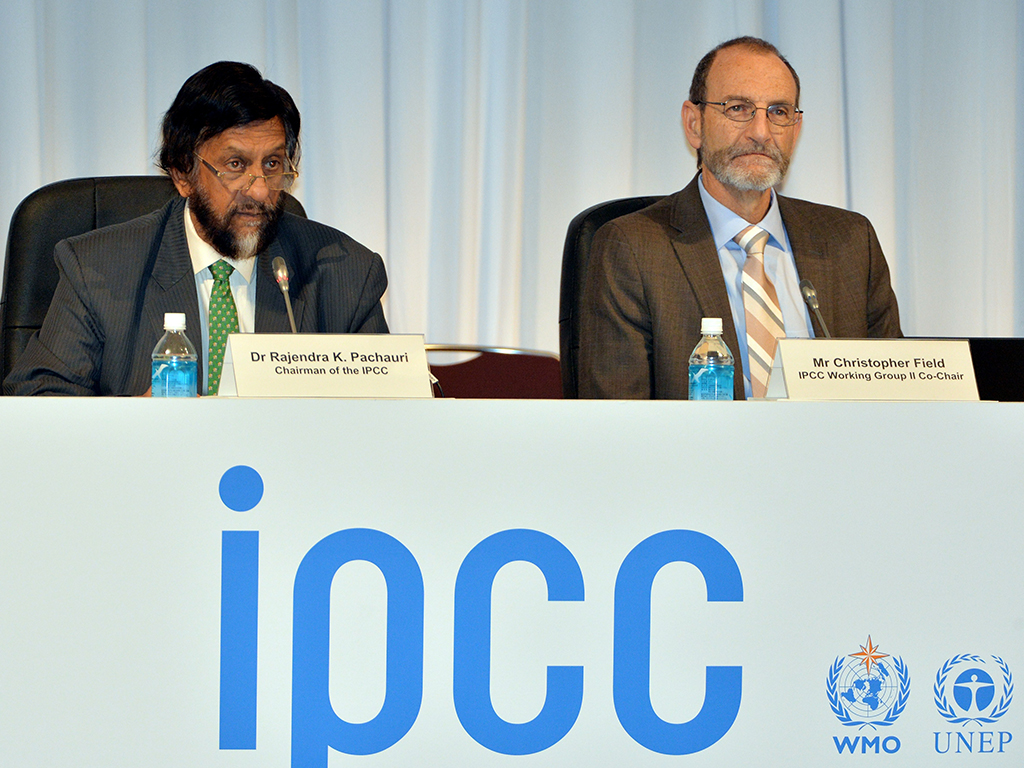UN climate change report highlights
A new IPCC report outlines the impacts of climate change to date and the opportunities for risk reduction

Released on Monday, the IPCC report predicts climate change to have a significant impact on life as we know it. IPCC chairman Rajendra Pachauri and Working Group II co-chair Christopher Field address a press conference in Tokyo
The Intergovernmental Panel on Climate Change’s latest report, entitled Climate Change: Impacts, Adaptation, and Vulnerability, is considered by many to be the most serious report on the subject to date. Here are some of its key findings:
Evidence for human impact
“In recent decades, changes in climate have caused impacts on natural and human systems on all continents and across the oceans,” reads the report. Evidence of human impact on these systems can best be seen in changing rainfall patterns, acidification of the oceans and changing animal behaviours among others.
The outlook for many of the world’s staple crops, most notably wheat, rice and maize, looks soon to suffer as a consequence of global warming
Food supply
“Climate change has negatively affected wheat and maize yields for many regions and in the global aggregate,” according to the report. The outlook for many of the world’s staple crops, most notably wheat, rice and maize, looks soon to suffer as a consequence of global warming, giving rise to occasional boom-and-bust cycles.
Rising competition
A temperature increase of as little as two degrees Celsius could incur lasting consequences for many of the world’s worst affected populations, largely due to increased competition for land and food security. “Increasing magnitudes of warming increase the likelihood of severe, pervasive, and irreversible impacts.”
Financial costs
Owing to a temperature increase of as little as two degrees Celsius, scientists estimate that global income could be reduced by two percent by 2050, even when factoring in government intervention. What’s more, the changes could land governments with a bill of some $100bn a year for the purpose of offsetting damages.
Adaptation
The proposed methods by which the world’s populations can offset climate change are various, and many amount to relatively simple and cheap solutions. More resilient crops, increasing rates of recycling and more efficient disaster response time are just a select few of the solutions posed by the IPCC.













